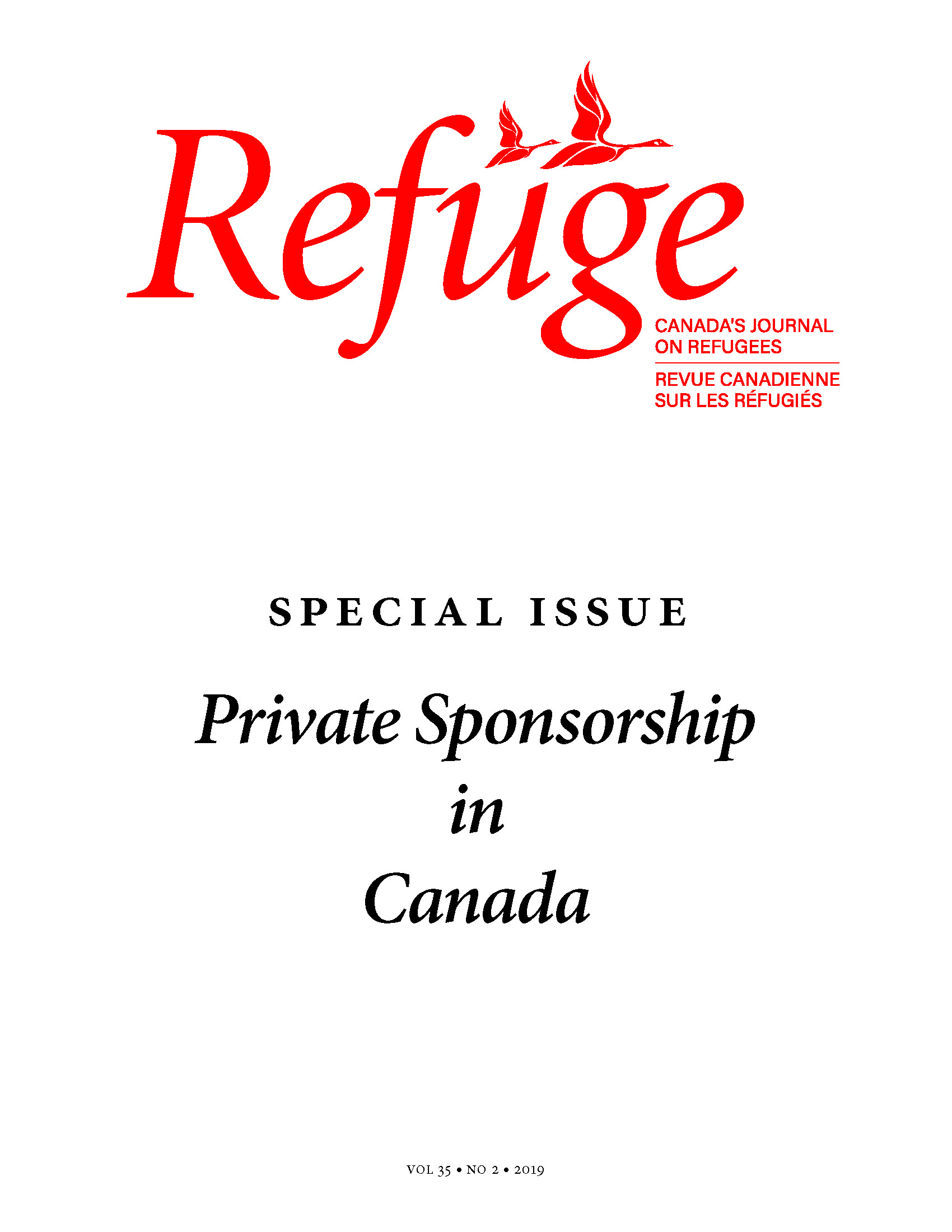Australia’s Private Refugee Sponsorship Program: Creating Complementary Pathways Or Privatising Humanitarianism?
DOI :
https://doi.org/10.7202/1064823arMots-clés :
Australia, community support program, private sponsorship, resettlement, humanitarian migrants, family reunification, privatizationRésumé
Résumé
Cet article offre la première histoire et critique du programme de parrainage privé des réfugiés en Australie, le Community Support Program (CSP). Alors que de plus en plus de pays se tournent vers le parrainage communautaire pour combler les besoins en matière de réinstallation, le modèle australien tient lieu de mise en garde. Le CSP, introduit en 2017, n’étend pas les engagements de l’Australie en matière de réinstallation, mais accapare des places au sein du programme humanitaire de réinstallation déjà existant. Le programme australien impose aux parrains des frais de demande exorbitants tout en donnant la priorité aux réfugiés qui sont prêts à occuper un emploi, qui ont des compétences linguistiques en anglais et qui sont capables de s’intégrer rapidement, minant ainsi le principe de réinstallation des plus vulnérables. Nous soutenons que le CSP détourne des places du programme humanitaire australien et représente une sous-traitance axée sur le marché ainsi qu’une privatisation des priorités et engagements de l’Australie en matière de réinstallation.
Statistiques
Téléchargements
Publié-e
Comment citer
Numéro
Rubrique
Licence
© Asher Lazarus Hirsch, Khanh Hoang, Anthea Vogl 2019

Cette œuvre est sous licence Creative Commons Attribution - Pas d'Utilisation Commerciale 4.0 International.
Les auteurs qui publient dans Refuge conservent le droit d’auteur associé à leur œuvre, et octroient au public une licence Creative Commons Attribution - Utilisation non commerciale 4.0 International. La licence permet l’utilisation, la reproduction et l’adaptation du matériel avec attribution par tous moyens et sous tous formats pour des fins non commerciales. Pour des informations générales sur les licences Creative Commons, visitez le site Creative Commons. Pour la licence CC BY-NC 4.0, consultez le résumé lisible par l'homme.







